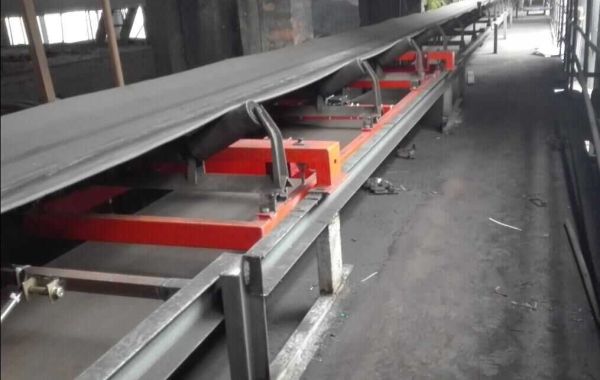Choosing the right electronic belt scale system depends on several factors specific to your application. Here are some key considerations:
Material Characteristics
- Type of material: The size, shape, density, and flow properties of the material you are conveying will influence the type of belt scale system you need. For example, fine, powdery materials might require a different type of scale than large, bulky items.
- Material flow characteristics: Consider how the material behaves on the belt. Does it flow smoothly or tend to clump or stick? This can influence the choice of load cell type and weighbridge design.
Conveyor Belt Specifications
- Belt width: The belt scale system needs to be compatible with the width of the conveyor belt to ensure accurate measurement.
- Belt speed: The maximum and typical operating speeds of the belt should be within the capabilities of the chosen scale system.
- Belt capacity: The weight capacity of the belt and the material load it carries should be compatible with the chosen scale system's capacity.
Accuracy Requirements
- The desired level of accuracy for your application is a crucial factor.
- Higher accuracy requirements will typically translate to a more expensive and complex belt scale system.
Consider the following
- Industry standards or regulations: Some industries might have specific accuracy requirements for weight measurement.
- Process tolerances: How much variation in weight can your process tolerate while still maintaining product quality?
- Cost vs. benefit: Evaluate the trade-off between the required accuracy and the additional cost of a high-precision system.
Budget
- Electronic belt scale systems range in price depending on features, accuracy, and capacity.
- Consider your budget constraints alongside the other factors to find the best value option that meets your needs.
Environmental Conditions
- The operating environment of the belt scale system can influence the selection.
- Factors like temperature extremes, dust, moisture, or exposure to corrosive materials might necessitate specific features or materials for the scale components.
Integration Needs
- Do you plan to integrate the belt scale system with existing control systems or automation software?
- Ensure compatibility between the chosen system and your existing infrastructure.
Maintenance Considerations
- Think about the ease of access for maintenance and calibration of the belt scale system.
- Some systems require more frequent or complex maintenance procedures compared to others.
Service and Support
- Consider the availability and reputation of the belt scale system supplier in terms of after-sales service and support.
- Prompt and reliable support is crucial for ensuring the long-term performance of your system.
By carefully evaluating these factors alongside the specific requirements of your application, you can make an informed decision when selecting the most suitable electronic belt scale system for your needs.







